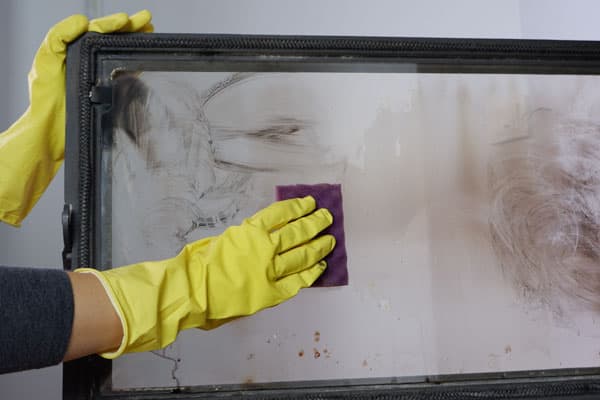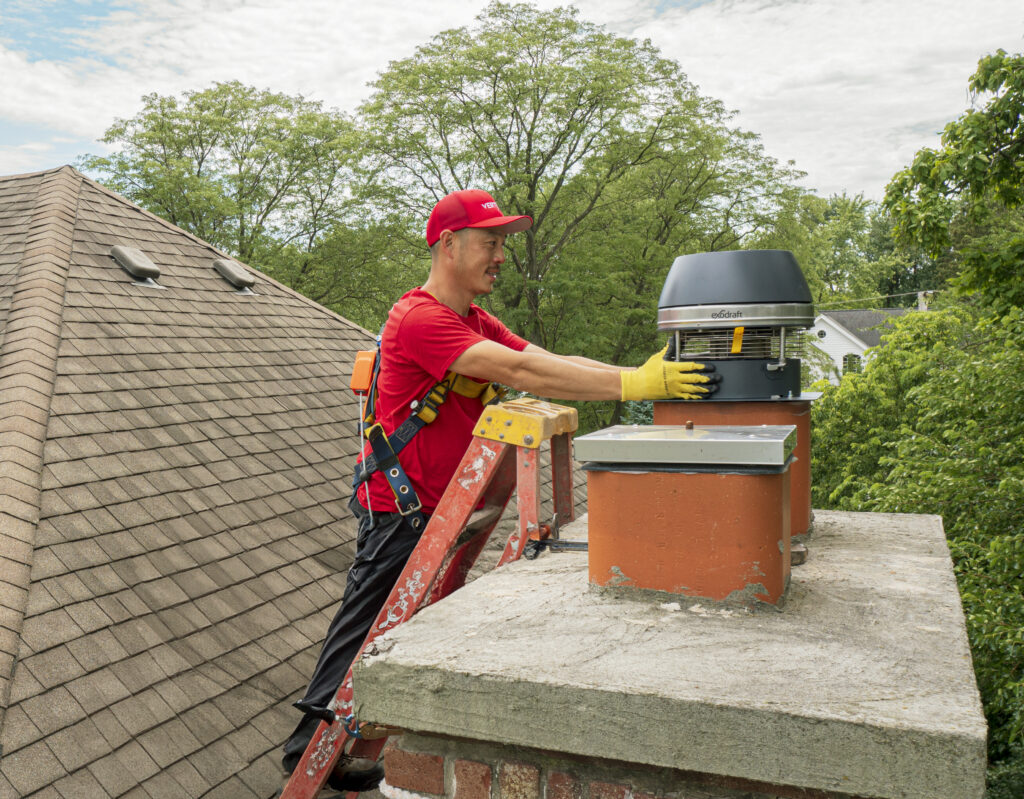
Five Benefits of Getting Your Gas Fireplace Cleaned
There are several different types of fireplaces. There’s wood-burning, which is a fireplace style in the traditional sense; there’s the gas fireplace, which has numerous different styles like direct-vent, ventless, and inserts.
A wood-burning fireplace can get messy, so getting it cleaned every year is certainly beneficial, but what about a gas fireplace? Since you aren’t actually burning wood does this style need to be cleaned? The answer is yes, and there are quite a few advantages that come with cleaning a gas fireplace.

Cleanliness Means Function
Gas fireplaces are clean-burning, but they aren’t an exception to becoming messy despite not being as bad as their wood-burning counterpart. Things like pests, dust bunnies, or nesting material can dirty up a gas fireplace and get stuck within the cracks, crevices, logs, and grate.
Keeping your gas fireplace is beneficial to its overall healthy functioning. You can easily clean your gas fireplace yourself:
-Grab a spray bottle and fill it with vinegar to clean off the front glass.
-Clean the logs in your glass fireplace. These logs are typically cement or ceramic. You can wipe them down with a microfiber cloth.
-Vacuum out the fireplace. Don’t use your regular vacuum if you can help it. Instead, it’s recommended that you use a shop vacuum to collect dust bunnies, dead bugs, debris, and pet hair, all of which can gather in your gas fireplace over time.
Professionals recommend that you have your gas fireplace—whether its vented or ventless—inspected annually by a trained technician. You can also have your chimney cleaned, too. Even you don’t use your gas fireplace often, you should have your chimney professionally swept as the same type of debris can accumulated within it over time.

Extend the Fireplace’s Lifespan
Keeping your chimney cleaned will extend and protect its lifespan. When you clean your chimney, you can make sure all of its parts are working properly and with this inspection, you’ll be able to see which ones need replaced.
Gas logs, if cracked or broken, can be repaired. If the logs are too damaged to be repaired, you can get them replaced, a task that can be completed through any professional chimney company or stores that specialize in fireplace equipment and tools.
When you check the operation of the pilot light and there’s a problem, you’ll want to contact a professional experienced in gas lines. Finding this out when you clean your gas fireplace is important because without the pilot light’s operation, you won’t be able to light a fire. By making sure things like the logs aren’t cracked and the pilot light is working when you go to clean your gas fireplace, you’ll be able to enjoy it for its full lifetime.
Prevent House & Chimney Fires
One of the most important benefits of cleaning your gas fireplace is preventing dangerous and fatal consequences like house and chimney fires. Fireplaces that are neglected (as well as chimneys that aren’t regularly cleaned or professionally inspected), can put your entire house at risk for a fire. No matter what kind of fireplace you have, you’ll want to clean them for this benefit alone. Fires shouldn’t be taken lightly, and by cleaning your gas fireplace, you can prevent them from happening.
Prevent Carbon Monoxide Leaks
Up there with preventing house and chimney fires is the benefit of preventing carbon monoxide leaks. Carbon monoxide can go undetected, and if your house isn’t outfitted with a carbon monoxide monitor, the results of a leak will be deadly.
This happens to gas fireplaces when the front glass isn’t sealed and allows for these dangerous byproducts to filter into living spaces within the house. It’s imperative that you do spend time cleaning your gas fireplace because not only is it beneficial to prevent toxic leaks from the glass front, it’s lifesaving.
Stop Water Damage
Water damage is the big concern for gas fireplaces, so when you’re cleaning your fireplace, you need to make time to check for signs of water exposure. Condensation is a known and common issue for gas fireplaces and to check for it, look for damp patches along the interior walls. Also keep an eye out for ceiling stains, wall discoloration (or if you have wallpaper, see if it is wrinkled around the fireplace and chimney area), and efflorescence, which is a term for the white blotches on exterior masonry.
All of these signs point to water damage, and that could mean your chimney is comprised. Your gas fireplace will suffer with a compromised chimney but keeping up with inspections and cleaning can prevent water damage from getting the best of the masonry. Tackling exposure to water early on can mean saving yourself from expensive repairs. You’ll need to call in the professionals to help you out, but if you spot this while cleaning your gas chimney, consider it a benefit in addressing it now.
Since 1985, we've helped thousands of homeowners with creosote cleaning and chimney maintenance. That's why we are the most trusted chimney maintenance company in the Midwest. Contact us to speak to a specialist!
